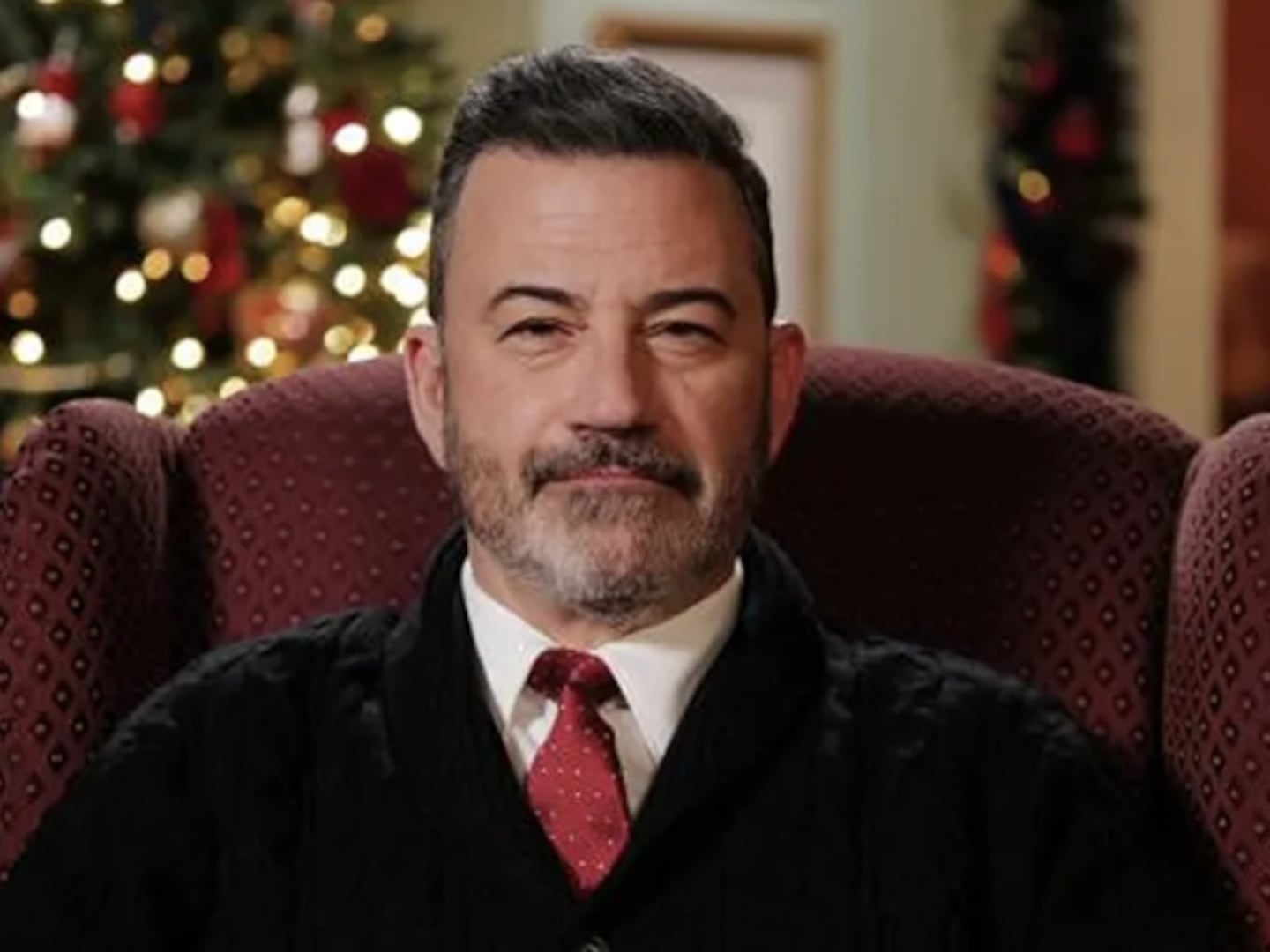If you’ve seen Poor Things, the marvelous new film from Greek auteur Yorgos Lanthimos, chances are that you were expecting a wild, occasionally perverse ride. After all, Lanthimos—whose work includes films about crooked doctors being blackmailed by nefarious teens, single people being turned into animals if they don’t partner up, and needy, gout-stricken royalty—is known for his penchant for the peculiar. But whether you were intimately familiar with Lanthimos’ films or were just looking to see the latest rousing performance from Emma Stone is no issue: Poor Things is a crash course in Lanthimos’ most treasured cinematic oddities.
Among all of the fisheye-lens cutaways and gleefully caustic dialogue, one moment, in particular, might’ve given you pause. It’s a revelation that arrives about halfway through the film, and turns an already kooky narrative on its head once more. Up until this point, viewers are led to believe that Bella Baxter (Stone), after dying by suicide, was reanimated by the brilliant scientist Dr. Godwin Baxter (Willem Dafoe). This is enough to explain Bella’s curious disposition and her maladroit movements as she regains control of her corporeal form—or so we initially believe.
Bella’s bizarre behavior is truthfully the symptom of something more unorthodox than being brought back from the dead. (In a Yorgos Lanthimos film, there are often stranger occurrences than resurrection.) Her true nature will no doubt puzzle—and possibly even disgust—some viewers, but Bella’s inquisitive temperament frames Lanthimos and screenwriter Tony McNamara’s doe-eyed take on starting your life over. Poor Things is brimming with a singular, pragmatic optimism. Through Bella’s eyes, the film becomes a remarkable glimpse at the things we could achieve if we weren’t so beholden to the standards of the world around us. We spend our lives plagued by the consequences of the choices we make while figuring out what it means to be human. Poor Things suggests that, though it feels utterly unfeasible, starting over is not an impossibility.
Beginning anew is certainly easier for Bella, given that she’s had the memory of her former life removed from her reborn consciousness. When Godwin is pressed by his assistant, Max (Ramy Youssef), about Bella’s true genesis, Godwin tells him that Bella died pregnant, with her unborn child surviving their mother’s death. With the baby close to full term—and not wanting to revive a woman who was at peace with her ending—Godwin swapped Bella’s brain with her child’s, shutting her away from the world while her brain and her body worked to synchronize.
Where that bonkers plotline starts to become slightly more tricky is when it’s run through the narrative framework of Bella’s character arc. She is very much a new woman, untainted by the social and cultural mores of society during her upbringing. Bella doesn’t have anyone to tell her how to behave, how to dress, or what to say. This is all by Godwin’s request; he and Max are to note Bella’s progression with little interference. Yet Bella longs to know not just what the world outside of Godwin’s manor is like, but also how it might influence who she is becoming. Naturally, that involves a whole lot of sex.

Emma Stone.
Searchlight PicturesBy the time Bella develops these carnal curiosities, her brain has matured well past the point of just coherent thought and speech. “She’s progressing at an accelerated pace,” her creator notes before sending Bella off into society as something of a Frankensteined young adult. Her brain and body’s ages are nearly in sync; Bella just has a few kinks to work out, some of which she’ll do on top of the mattress.
Some viewers of the film were quick to deem Bella’s storyline “problematic.” Independent critic and YouTube sensation Grace Randolph said that she had “serious issues” with the film, referencing the brain-swap plotline, calling it “morally questionable.” Granted, the film doesn’t specify what age Bella’s brain is supposed to be when she begins her hedonistic world tour—nor does it explain the brain-aging process in general. But Poor Things is already a film about a woman’s corpse being reanimated after it’s found in a shallow, watery grave. Is the scientific anomaly of rapid mental maturation really where audiences will draw the line when it comes to the suspension of disbelief?
Nevertheless, Bella’s untainted, idealistic wonder is a critical part of her story. We can empathize with Bella because she navigates the same extreme feelings as we do, heightened by their novelty as these new experiences permeate her sheltered life. Self-stimulation quickly leads to an obsession with masturbation, which then turns into a demand to see—and fuck—the world.
Sex is her ultimate pleasure, an exaltation of physical, mental, and emotional stimuli radiating through Bella’s body like a rapture. Bella suffered no quiet, coquettish whispers among girls, and certainly no slapping of an errant hand by a mother in her upbringing. To strangers, it seems Bella is ruled by her id. But this is a woman with complete and total freedom: She commands her own body.
But because Bella has no mental framework for human attachment or consequence, it comes as a shock to her that her actions don’t fit in with the planet she’s trying to assimilate into. Her smarmy companion Duncan Wedderburn (Mark Ruffalo) initially purports to be as unattached as Bella, only interested in erotic pleasures. But soon, he too becomes entranced by her independence; it’s a bewitching sensation that he can’t grasp, hampered by his vices for lust and gambling when he tries. It’s no surprise that Bella soon learns that sex is our most basic human desire, as well as our most debasing. With the confluence of her sexual liberation and Duncan’s increasing possessiveness, Bella faces her first uniquely human obstacle: Her naive trust in Duncan was a mistake too big to fix, and she must start over again.
As much as we’re told in life by our early educators and (most of) our parents that mistakes are natural and perfectly okay to make, we’re also led to believe that they can be life-altering. Both of these things can be true, but the vacillating severity leads to a sense of whiplash. We either make an error so minuscule that it can be solved with a sincere apology, or we blunder so badly that it threatens to ruin us entirely. The polarity is a nearly impossible concept to grapple with as you grow older, when the lapses in good judgment and critical foresight seem even more seismic.

Ramy Youssef, Emma Stone, Vicki Pepperdine, and Willem Dafoe.
Atsushi Nishijima/Searchlight PicturesYou and I, with the knowledge of our entire lives scattered somewhere in the back of our brains, can’t choose a fresh start as easily as Bella Baxter. We have family to consider, debts to pay, careers to nourish, and emotions to tend to. By the time we’re staring down the barrel of our most cataclysmic misjudgments, we can’t just uproot everything we’ve built. We’ve lost too much time, and the chance to take what we know now and transform ourselves into someone new is fleeting, if it ever truly arrives. We bask in our free will until we realize that even autonomy is a limited resource as a full-grown adult.
But Bella is unburdened by all of these moral and ethical hindrances. Thrust into the world fully grown and with no attachments, she’s capable of deciding for herself. Bella needn’t consider the feelings of anyone who tries to restrain her, or the people that make her feel like her actions are errors that she should be ashamed of. Her inability to feel anything other than lust for Duncan is no fault of her own—so why should she be considered the scoundrel in their dynamic? Is putting yourself first really the cruelty that men make it out to be?
Certainly, there are layers to this. Unfettered egotism and soulless sociopathy aren’t in Bella’s best interest, but there’s no reason a healthy dose of selfishness can’t be. Bella has the unique privilege of starting completely pure, and she has no reason to believe that her choices will ever limit her life once she starts to live it. She finds ways to navigate her course—be it through sex, knowledge, or a deft combination of both with the clients she engages with at a Parisian brothel she finds herself living and working in.
It’s because Bella has this ultra-fucked-up origin story that she learns how to become an idealistic, romantic version of what a human can be. She’s someone who travels, loves, lives, and learns with a ravenous intensity. She’s completely unencumbered by what others might think of her voracious appetite for the full-bodied pleasures of her human form. Bella has no reservations about being “good” or “bad,” nor does she worry herself with archaic ideas of normalcy. She makes love, sex, home, and occupation work for her rather than bending herself to anyone else’s will.
In Bella’s world, she can start over whenever she pleases. She can tote what she’s learned in life by her side, rather than dragging it behind her. She’s liberated by loving herself. And while we rarely get the opportunity to make such bold decisions, just thinking about what could happen by truly putting ourselves first is enough to open a world of possibility. When we not only confront what we truly want, but accept it, we make the first pivot toward getting it—baby brain not required.






